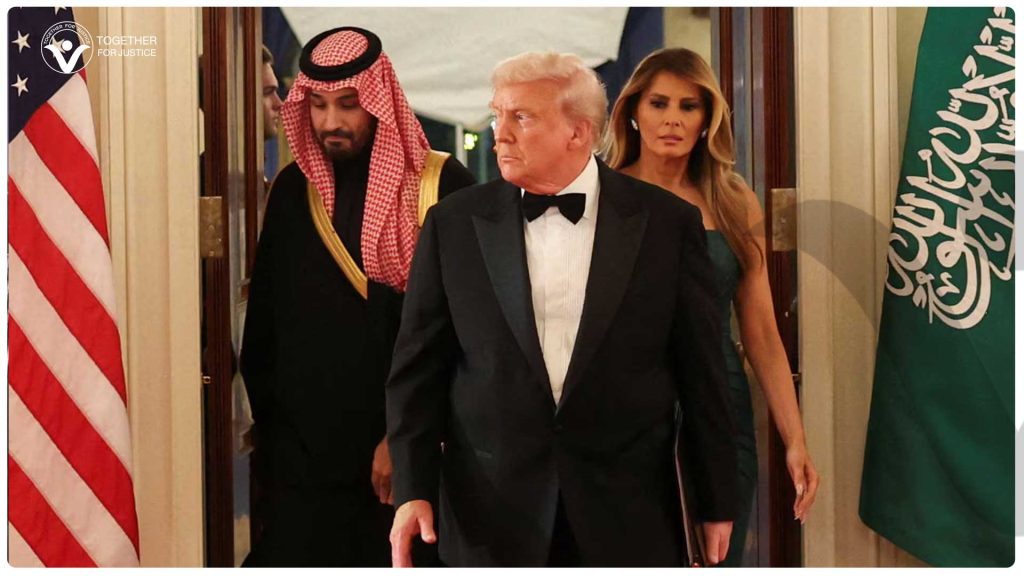The meeting held yesterday between U.S. President Donald Trump and Saudi Crown Prince Mohammed bin Salman at the White House reflects a decisive shift in the political priorities of both Washington and Riyadh. Far from being a routine diplomatic visit, the encounter signaled the reactivation of a strategic agenda in which normalization between Saudi Arabia and Israel has become a central pillar—while the Palestinian question is pushed entirely outside the frame.
For months, U.S. officials have been working to rebuild their relationship with Mohammed bin Salman after years of tension following the murder of journalist Jamal Khashoggi. The reception accorded to the Crown Prince inside the Oval Office—absent any discussion of human rights, political repression, or accountability—confirms that Washington now sees Saudi Arabia as an indispensable partner in structuring the regional landscape. Restoring the Crown Prince’s legitimacy is no longer a point of debate; it is part of a larger strategic calculation.
From the Saudi perspective, normalization is not simply a diplomatic gesture toward Israel. It is an entry point to a broader regional role: military agreements, advanced defense cooperation, intelligence partnerships, and access to long-term U.S. political backing. The Saudi leadership understands that aligning closely with Washington’s regional blueprint strengthens its own position at a time when international scrutiny of domestic repression has significantly weakened.
The timing is telling. The visit took place while Palestinians endure a year-long assault in Gaza that has produced unprecedented levels of destruction, displacement, and humanitarian collapse. Yet the devastation in Gaza and the decades-long Israeli violations of Palestinian rights did not appear as a substantive factor in the White House discussions. Instead, the agenda revolved around defense modernization, security coordination, and the next phase of regional integration—an integration in which Israel is treated as a fully accepted actor.
This realignment shows that the Palestinian cause is no longer considered a core political issue in U.S.–Saudi negotiations. It is neither a prerequisite for cooperation nor a matter that influences the pace of U.S.–Saudi strategic planning. The shift is not symbolic; it changes the structure of the regional order by removing the only remaining political constraint that once slowed down normalization.
For Israel, this trajectory offers a major diplomatic victory without any concessions toward ending the siege on Gaza or halting ongoing violations. For Washington, it reshapes alliances in a way that prioritizes military coordination over human rights. And for Saudi Arabia, it reinforces its status as a decisive regional actor whose internal record—mass detentions, long prison sentences for peaceful speech, and the suppression of dissent—no longer obstructs its international partnerships.
Together for Justice views this visit as a turning point that carries serious implications:
- It consolidates a political environment in which Israeli violations—past and present—are excluded from regional decision-making.
- It strengthens the position of the Saudi leadership despite its continuing repression of activists, scholars, and dissidents.
- It paves the way for a normalization process driven solely by strategic interests, with no consideration for the rights of Palestinians living under occupation and siege.
A political arrangement built on military deals and strategic calculations alone cannot bring stability to the region. Any framework that sidelines the Palestinian people while elevating actors responsible for widespread violations is not a path to peace; it is the foundation of a deeper, more entrenched conflict.

